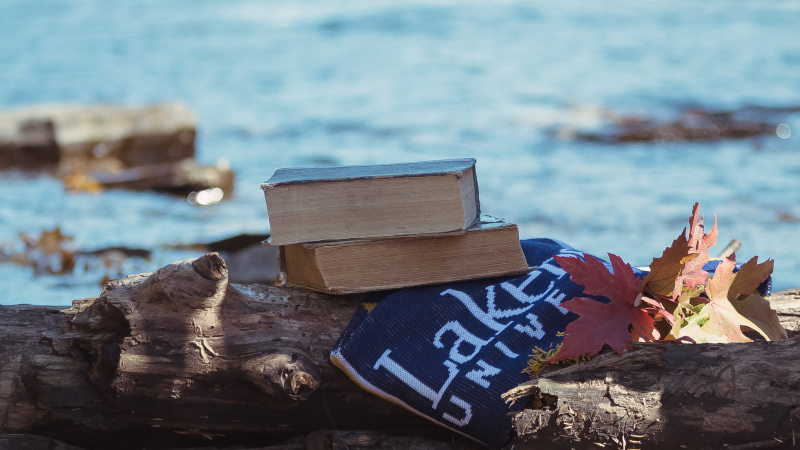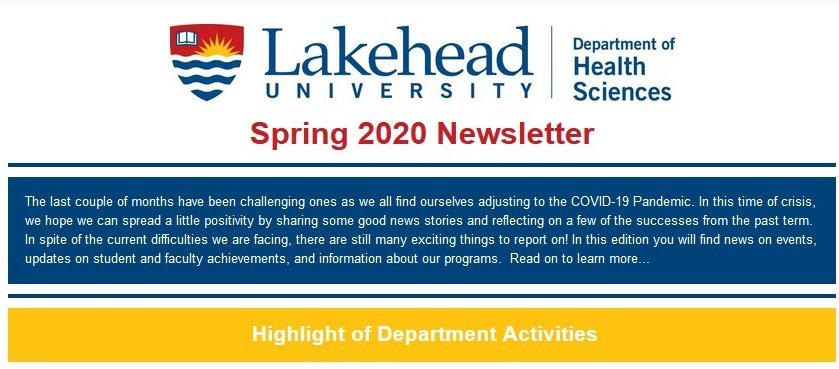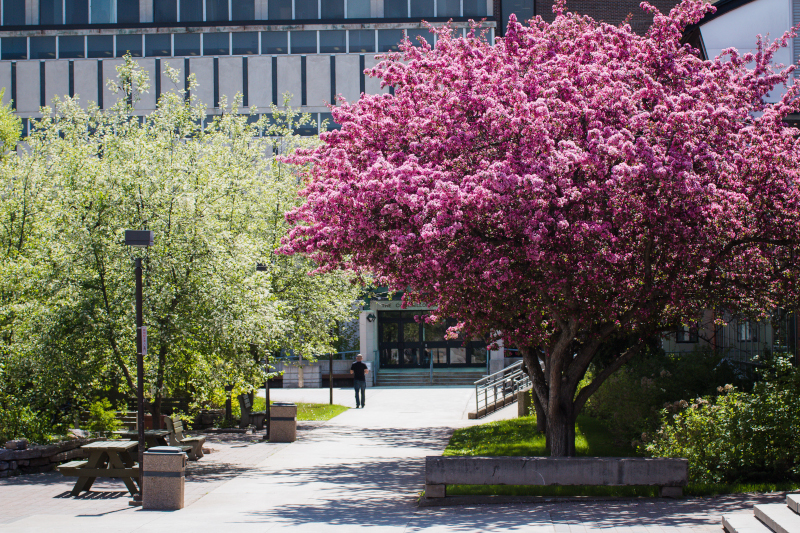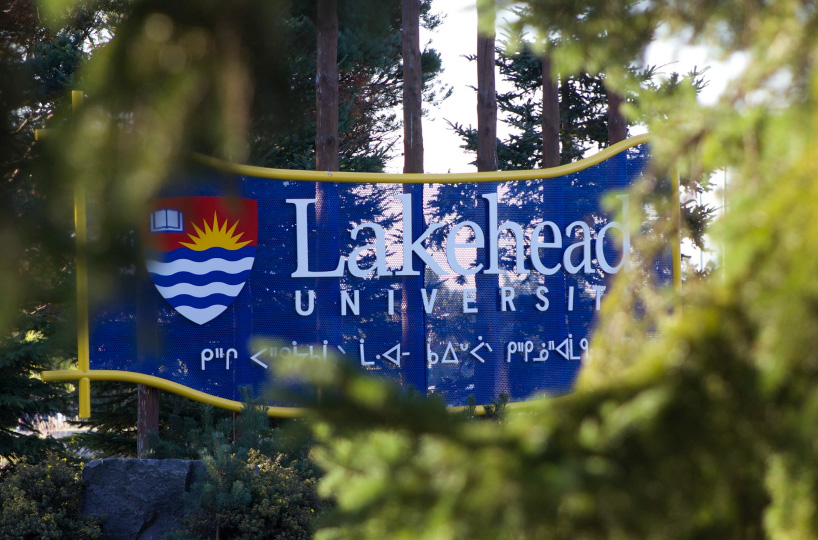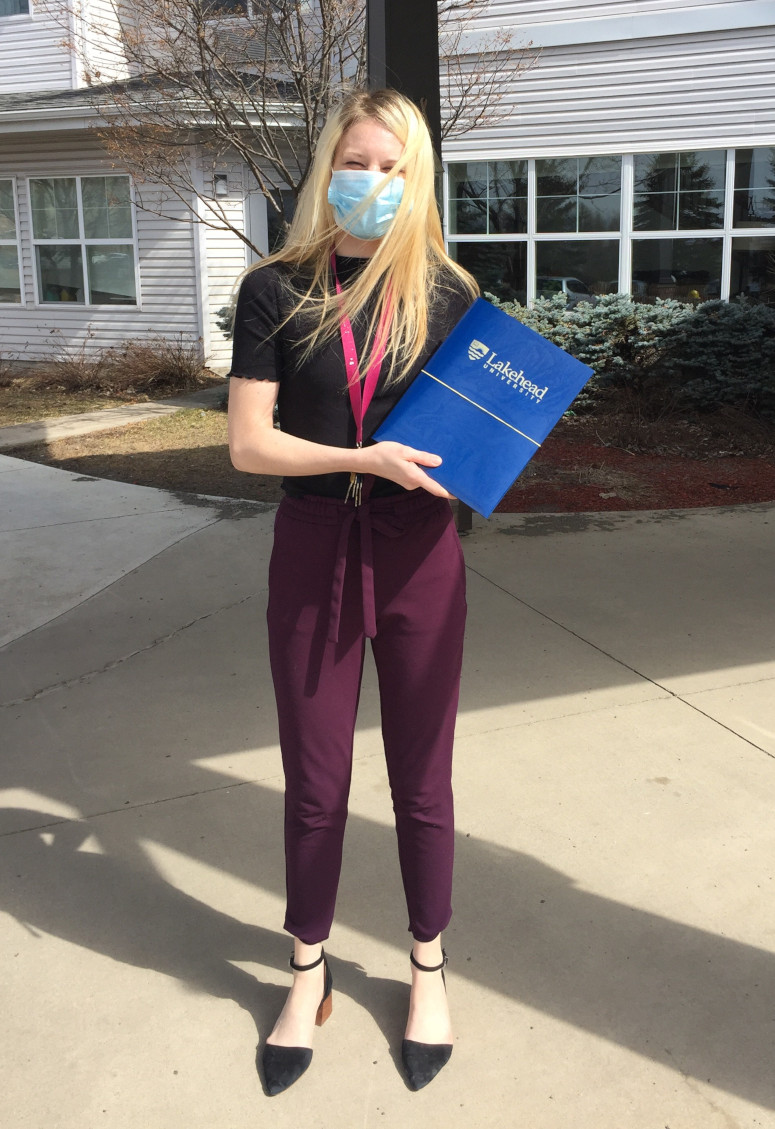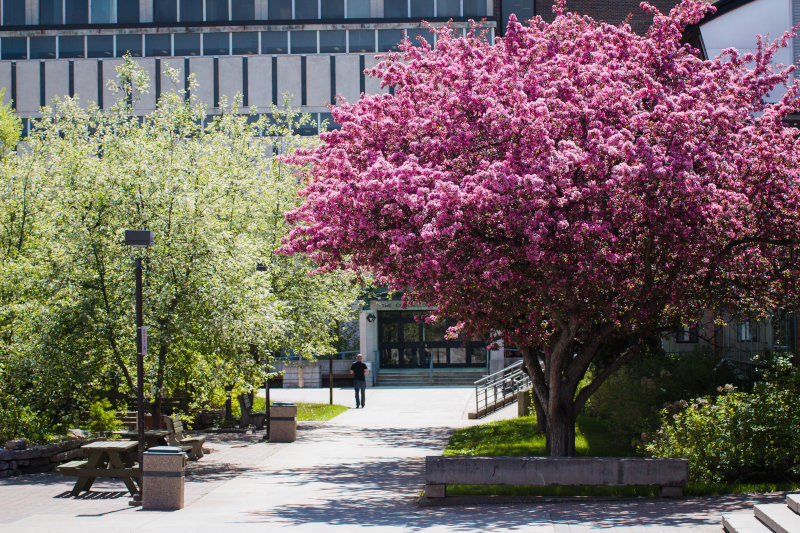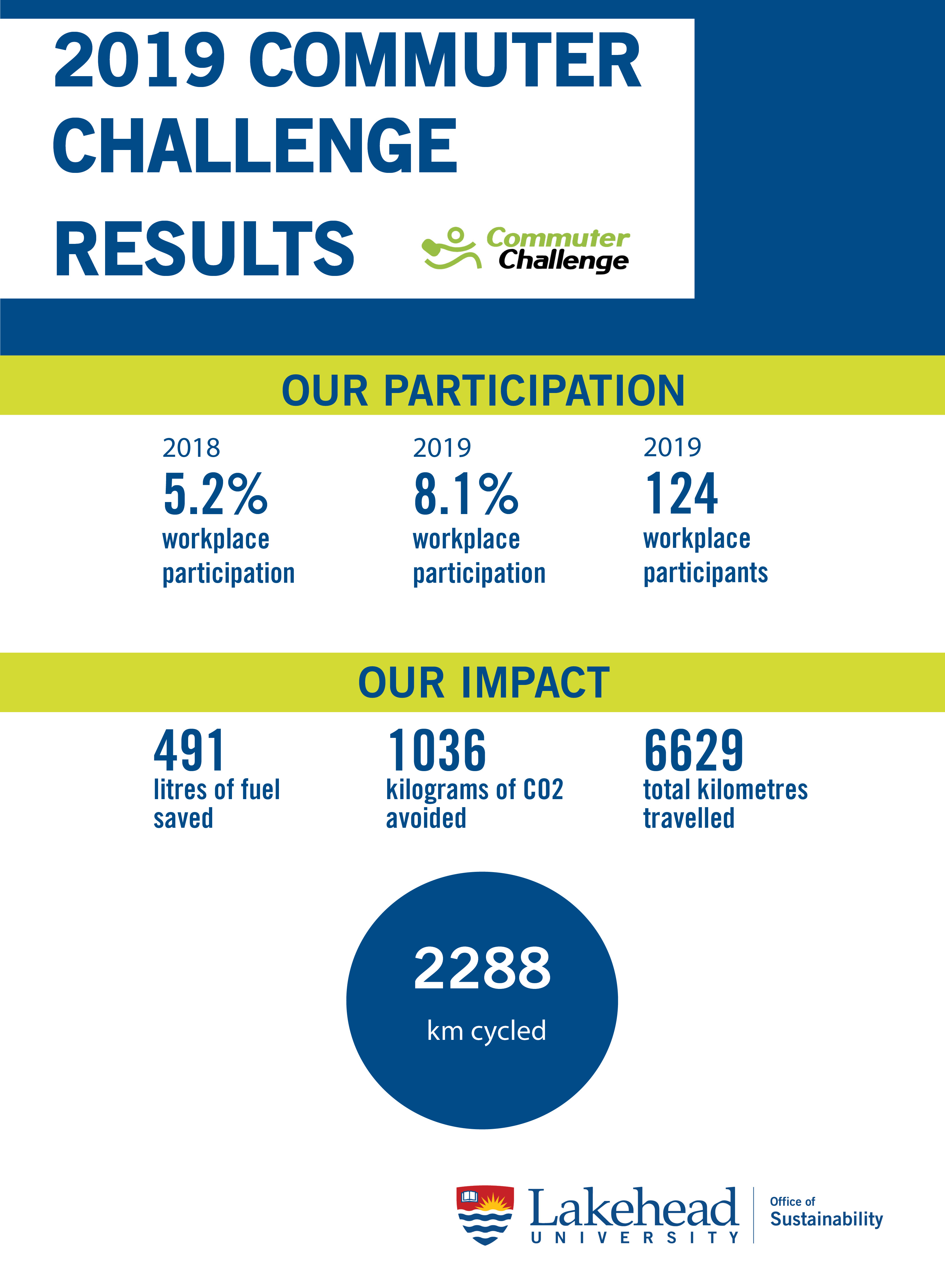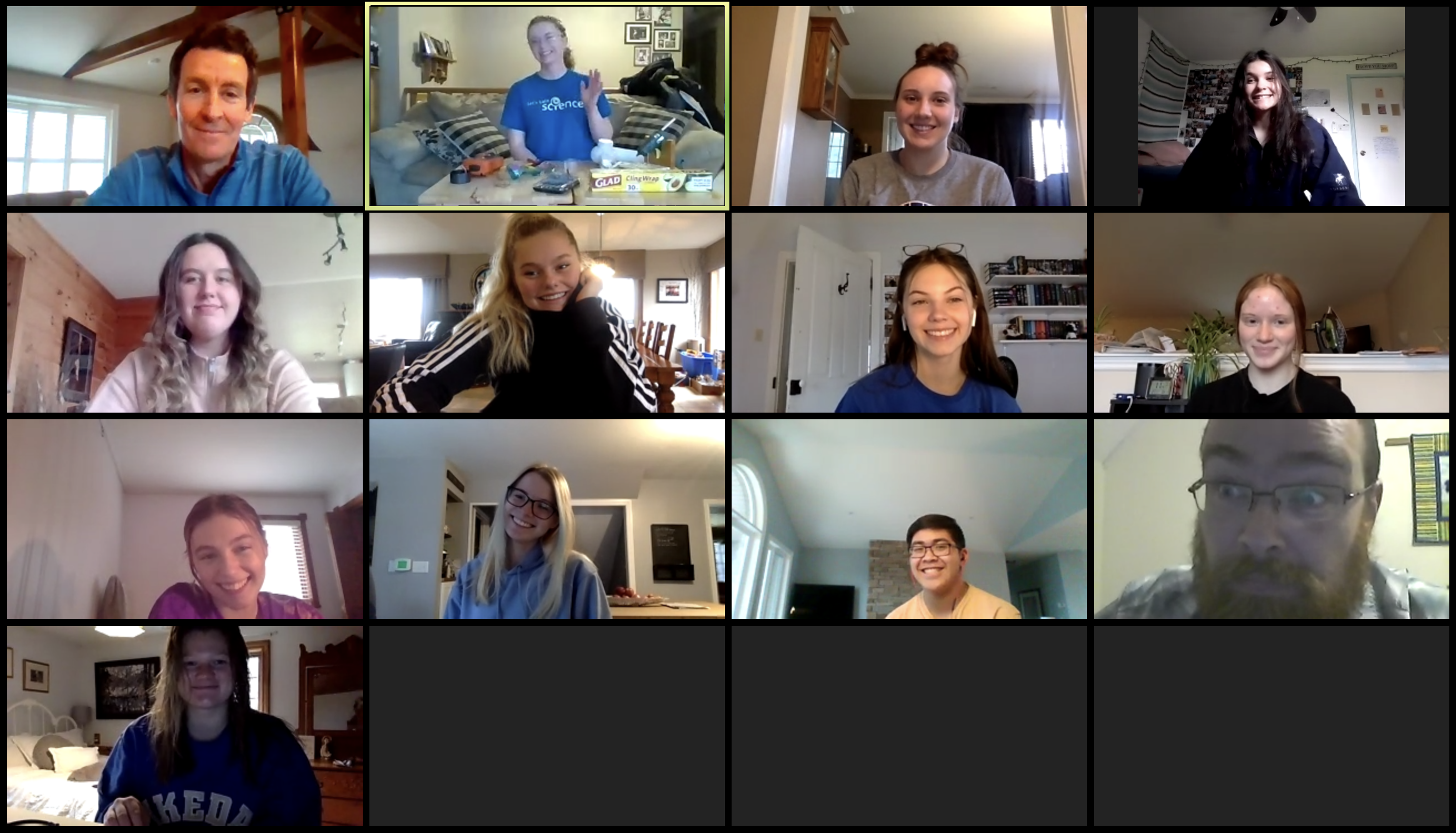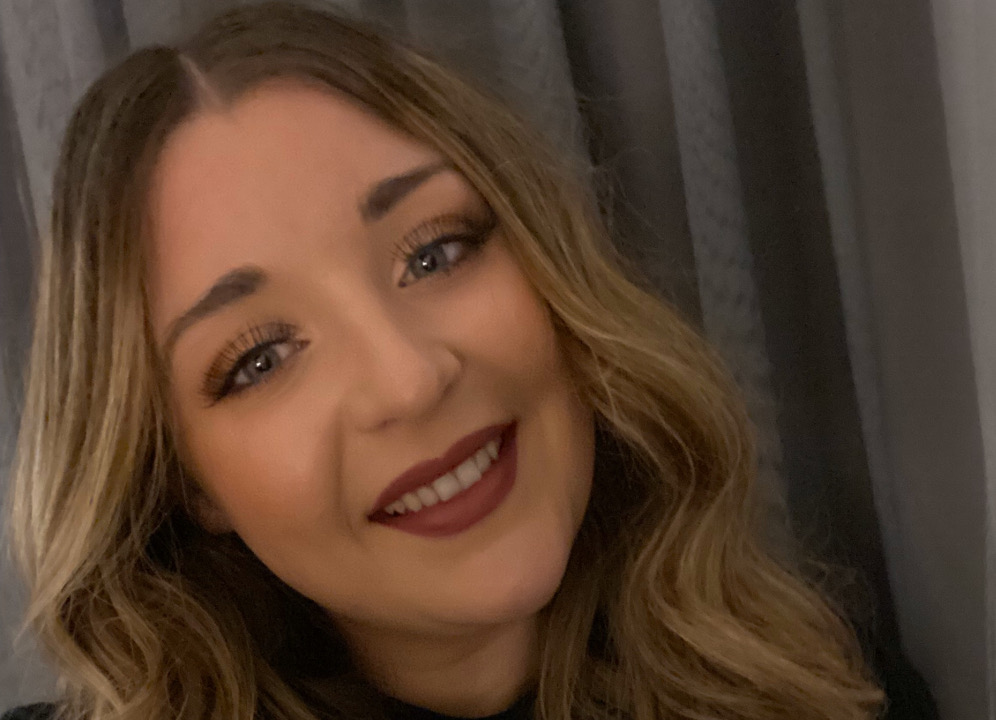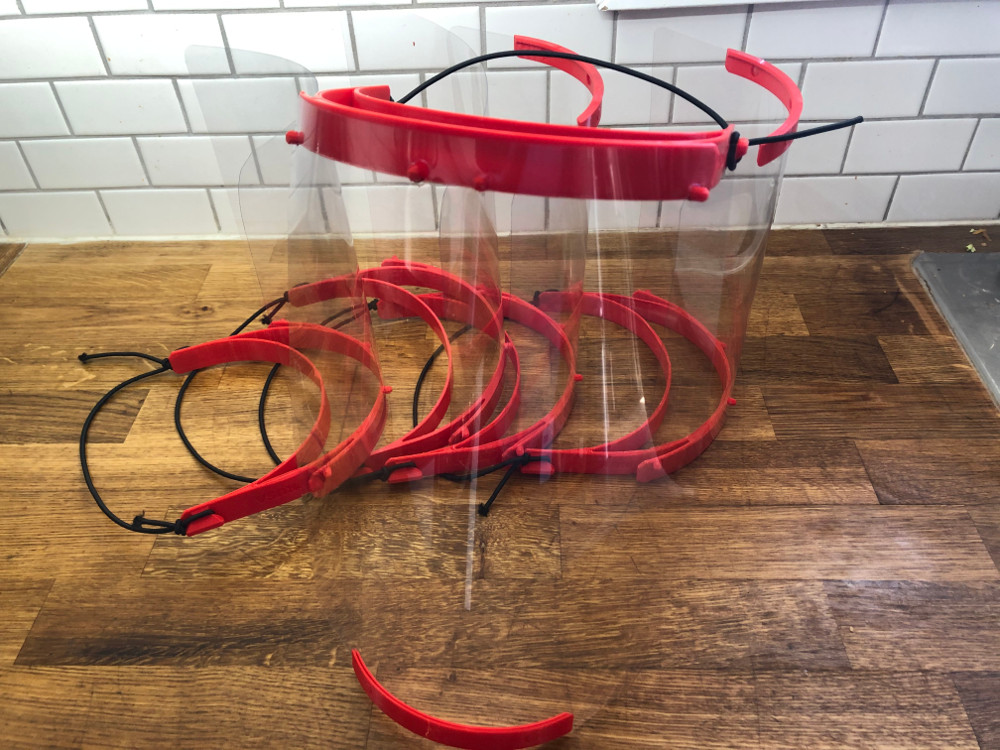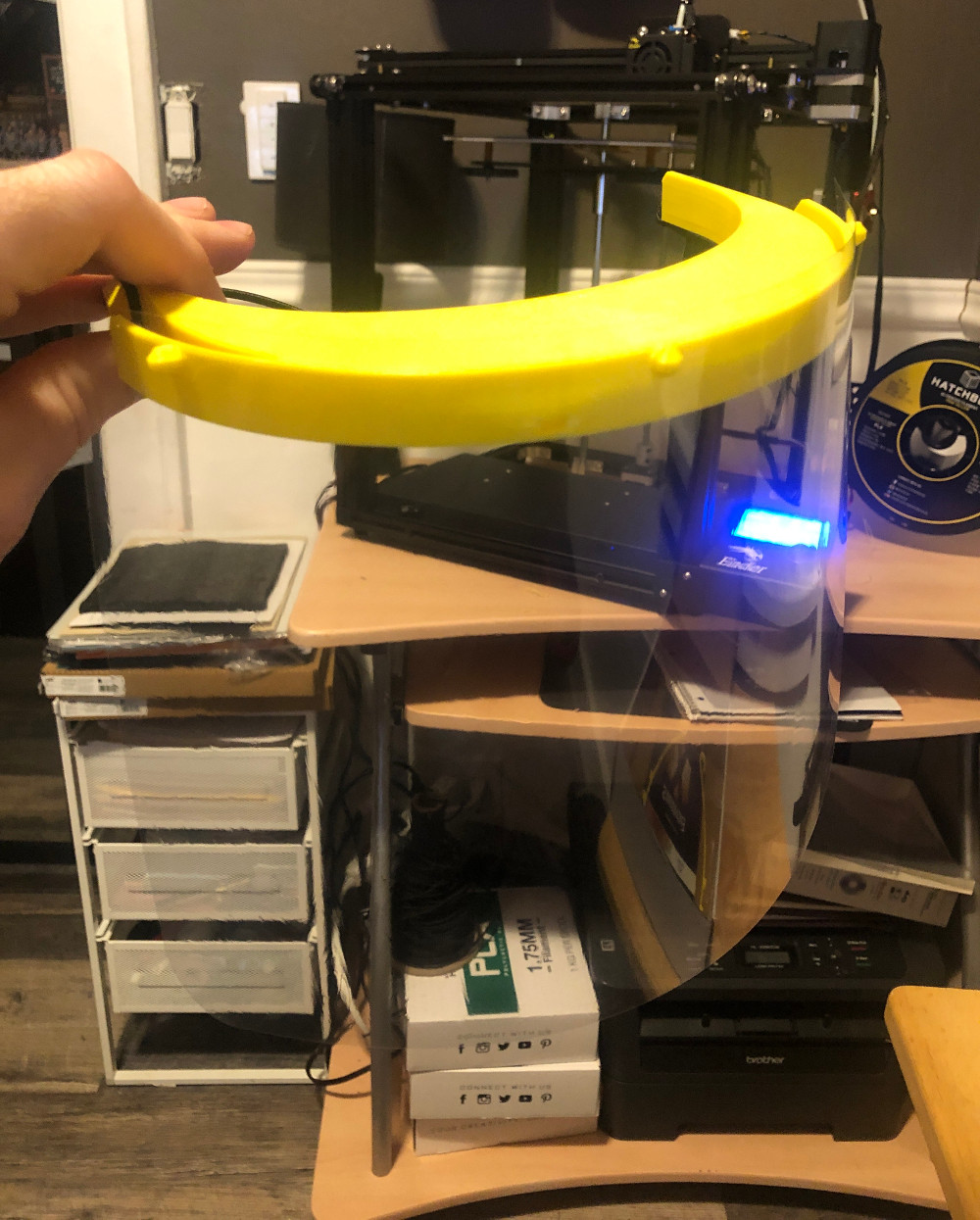
Kevin Carlson holds up a face shield made with his 3D printer.
April 17, 2020 – Thunder Bay, Ont.
A group of people in Thunder Bay is working together online to create face shields that could protect local health-care workers from COVID-19, created using 3D printers.
This group is comprised of individuals who went to school at Lakehead University and who work at the Northern Ontario School of Medicine, as well as anyone else who owns a 3D printer and wants to help.
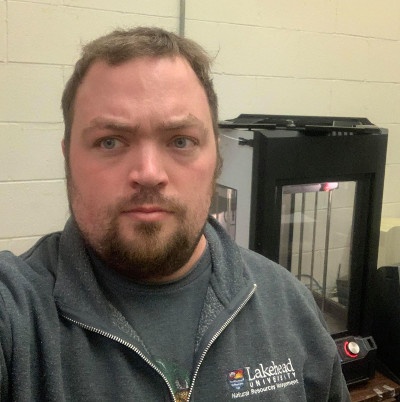
Alex Bilyk is a PhD candidate in Natural Resources Management at Lakehead who runs the University’s Centre for the Application of Resource Information Systems.
Bilyk is using the 3D printer that Goldcorp donated to CARIS out of his home all day, every day and overnight, to create face shields for health care workers in the area including his wife, who is a nurse in the emergency room at Thunder Bay Regional Health Sciences Centre.
He is making 18 to 20 face shields per day along with mask straps that take the pressure off the wearer’s ears.
“These are an emergency item of last resort,” Bilyk said. “It’s not a replacement for commercially graded PPE. These masks are in case we run out.”
He is working with Lakehead alumni Michael Poling (HBPE '93/MSc.'95), who is the Assistant Professor of Clinical Sciences at the Northern Ontario School of Medicine, and Kevin Carlson (BA Anthropology '98), a digital forensic analyst for the Ontario Provincial Police.
Bilyk has not met Poling or Carlson – who have known each other for 25 years – but he is working with them through covidtbay.ca, a Facebook group where you can seek advice on using a 3D printer to create PPE for those in Thunder Bay who need it.
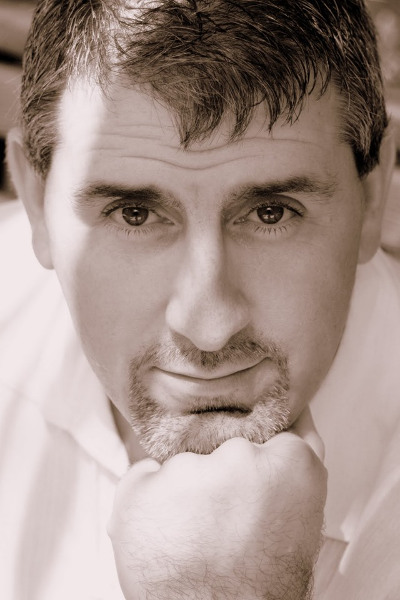
Poling said he is making face shields and mask clips, but he is also looking into respirators. They have created more than 150 masks but “we are just getting started,” Poling said.
“My friend Kevin just got his second printer, and mine is on its way, somewhere in the ether of the shipping company,” he said.
“When that happens, production is going to double. I am also trying to borrow any 3D printers that may be lying around so I can set them up in my woodshop. I can fit at least five more printers in there if I can borrow them.”
Poling said he has known many local physicians and nurses for years – they are his colleagues and friends.
“Additionally, many are students I have trained and become friends with in my 16 years at NOSM, so I want to help protect them in any way I can. Given the lack of PPE right now, my knowledge of medicine, and my skills as a maker, this seems the most effective way to do that,” he said.
He is currently making around 75 face shields per day using his 3D printer. Although he said they are not pretty, the shields will work if required.
“If I could slow down, I could make them look awesome – but that isn't the goal.”
Poling said times have changed from when he worked in a hospital during SARS in the early 2000s.
“We were nervous then, but we weren’t scared. This is different, but not because the disease is so bad. It’s different because we have this society of information at our fingertips and everyone believes they are experts because they Google something.
“And that has made people ignore medical information and science because there is more misinformation online than actual information, and people believe it rather than trusting the scientists.”
Poling said even he has a difficult time figuring out what is true and not true when doing research on the internet.
“It takes time and asking the right questions, which I am trained to do after 11 years of university and 26 years as a healthcare professional. So, if I have a hard time, others will too.”
He said members of society shouldn’t be scared and suggested ways people can be helpful now.
“We should be determined, careful, thoughtful and caring,” Poling said. “Being scared makes people do silly things and ignore each other. We can’t afford to do that now. Determined, careful, thoughtful and caring. That is how we will win this.”
Carlson said he had heard there was a need for PPE and this is something he could do while working from home.
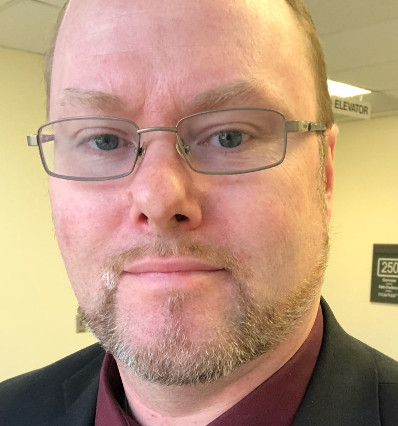
“My girlfriend used to say that I never printed anything useful – so I thought I'd prove her wrong,” he said.
He is currently making around 25 to 30 comprehensive and basic face shields per day, but he could soon ramp up production by getting a third 3D printer running.
The world hasn’t seen a virus like COVID-19 in recent history, Carlson said.
“Of course it’s scary – but fear can often be a good thing though, as it drives people to come together in times of crisis. I think we are seeing that happen now, all over the globe.”
The university also has an employee creating face shields for health care workers.
Mohammad Darzaid is in his fourth year in Mechanical Engineering at Lakehead and he has worked as the student assistant in the Chancellor Paterson Library’s Makerspace for the last two years.
He will be using the university’s two 3D printers to create 30-40 face shields per day in the CASES building.
In Lakehead’s Ingenuity business incubator space, also located in the CASES building, manager Alyson MacKay and Taylor Gynane, Development Officer, are printing 10 to 20 face shields per day.
The group is requesting donations to purchase needed supplies such as acetone sheets and plastic rolls of filament used in the 3D printer. You may donate using this link: https://tinyurl.com/so3hspy.
For more information, visit covidtbay.ca or email northernontarioppeforhcp@gmail.com.
– 30 –
Media: For more information or interviews, please contact Brandon Walker, Media, Communications and Marketing Associate, at (807) 343-8177 or mediarelations@lakeheadu.ca.
Lakehead University is a fully comprehensive university with approximately 9,700 full-time equivalent students and over 2,000 faculty and staff at two campuses in Orillia and Thunder Bay, Ontario. Lakehead has 10 faculties, including Business Administration, Education, Engineering, Graduate Studies, Health & Behavioural Sciences, Law, Natural Resources Management, the Northern Ontario School of Medicine, Science & Environmental Studies, and Social Sciences & Humanities. In 2019, Maclean’s 2020 University Rankings, once again, included Lakehead University among Canada’s Top 10 primarily undergraduate universities, while Research Infosource named Lakehead 'Research University of the Year' in its category for the fifth consecutive year. Visit www.lakeheadu.ca.
